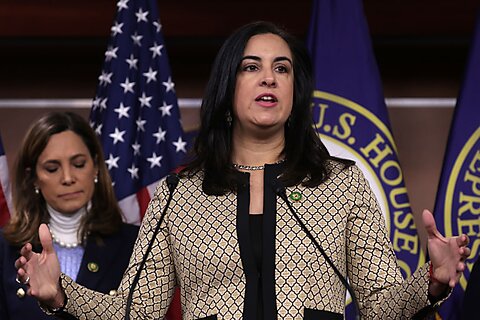Representative Nicole Malliotakis (R‑NY) has long opposed overdose prevention centers (OPCs). The City of New York and its Department of Health authorized the harm reduction organization OnPointNYC to open two OPCs, one in East Harlem and one in Washington Heights. They opened on November 30, 2021. Rep. Malliotakis opposed the move, and asked Attorney General Merrick Garland to intervene, citing the 1986 federal “crack house statute” (21 USC Sec. 856) banning people from owning or managing a “building or enclosure” where they know that people use federally prohibited substances. When her efforts failed, she introduced a bill in the House of Representatives nine days later to try to stop it.
Exercising prosecutorial discretion, the US Department of Justice took no action against the OPCs, and by December 2024, the OPCs had reversed more than 1,600 overdoses—people who might otherwise have been fatality statistics.
Now Malliotakis is at it again. Hoping that the Trump administration’s Department of Justice would share her antipathy towards this harm-reduction strategy that has been saving lives in advanced countries like ours since 1986, she has written Attorney General Pam Bondi, asking her to enforce the crack house statute and close down the OPCs.
In a 2023 Cato Institute briefing paper, I reported that 147 OPCs operated in 91 locations and 16 countries. Since then, a new OPC recently opened in Providence, RI, after lawmakers there approved a pilot program. Last summer, Vermont lawmakers overrode the governor’s veto and authorized an OPC for the city of Burlington. Burlington’s mayor hopes to see it operating later this year. Minnesota’s legislature authorized up to 15 independently run OPCs in 2023, but none have opened thus far.
Researchers from the University of Pennsylvania and Brown University reported in the Journal of the American Medical Association in November 2023, “[T]he first 2 government-sanctioned OPCs in the US were not associated with significant changes in measures of crime or disorder. These observations suggest the expansion of OPCs can be managed without negative crime or disorder outcomes.”
In a study published in The Lancet in February 2024, researchers examined the overdose mortality rates in Toronto, Canada, between May 2017, when nine OPCs opened in the city, and December 2019. They found that overdose fatalities dropped significantly during that period in neighborhoods surrounding the OPCs but not in other neighborhoods.
In April 2024, scholars at the New York City Department of Health and Mental Hygiene reported in NEJM Catalyst on the city’s two OPCs’ first full year of operation:
“From November 30, 2021, to November 30, 2022, 2,841 individuals visited the two OPCs 48,533 times and staff intervened during 636 visits (1.3%) to prevent overdose-related injury and death. During this period, emergency medical services (EMS) were called only 23 times, and no overdose deaths occurred in the OPCs. Results suggest that the OPCs diverted up to 39,000 instances of public drug use and played a critical role in connecting participants to care, with 75% of participants accessing other harm-reduction, social, and medical services through OnPoint NYC.”
Besides saving lives and reducing public drug use, OPCs reduce the number of emergency medical services (EMS) calls and the costs associated with them.
Republicans have long espoused a commitment to federalist principles, i.e., “the division and sharing power between national and state governments.” In that spirit, Representative Malliotakis should respect the decisions of state and local governments as they grapple with the addiction and overdose crisis. She should let the “laboratories of democracy” experiment with harm-reduction strategies that have worked for 40 years in other advanced countries.
To that end, Congress should repeal the “crack house statute” or, at a minimum, carve out an exemption for local government-sanctioned overdose prevention centers.

